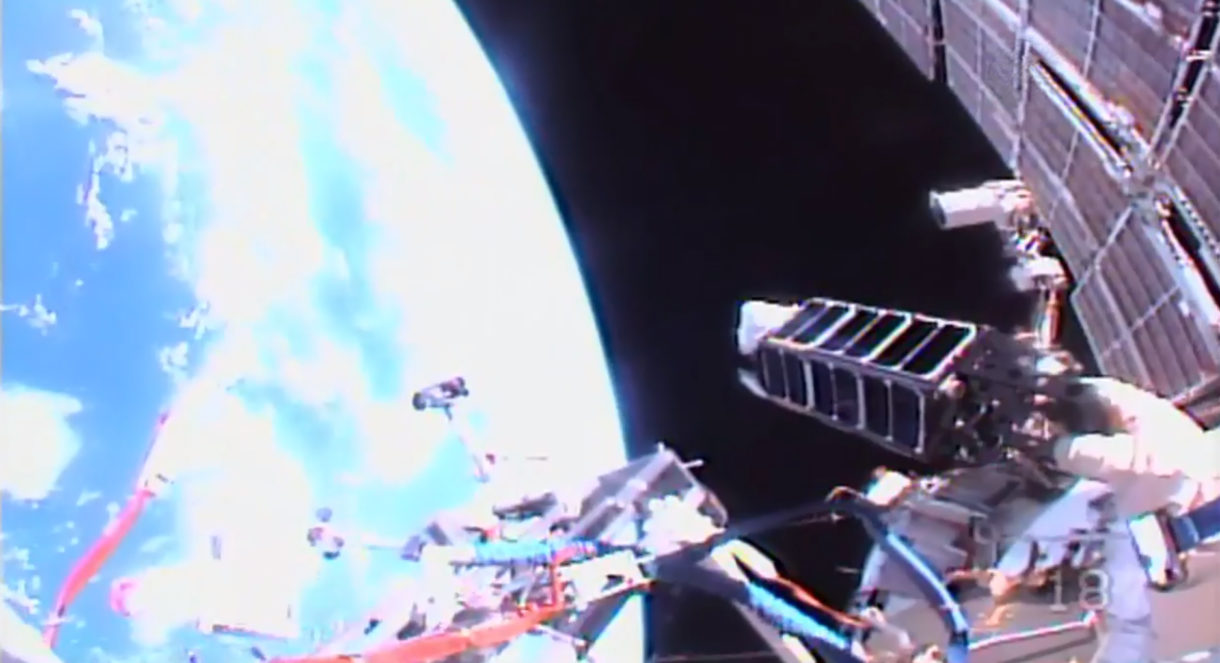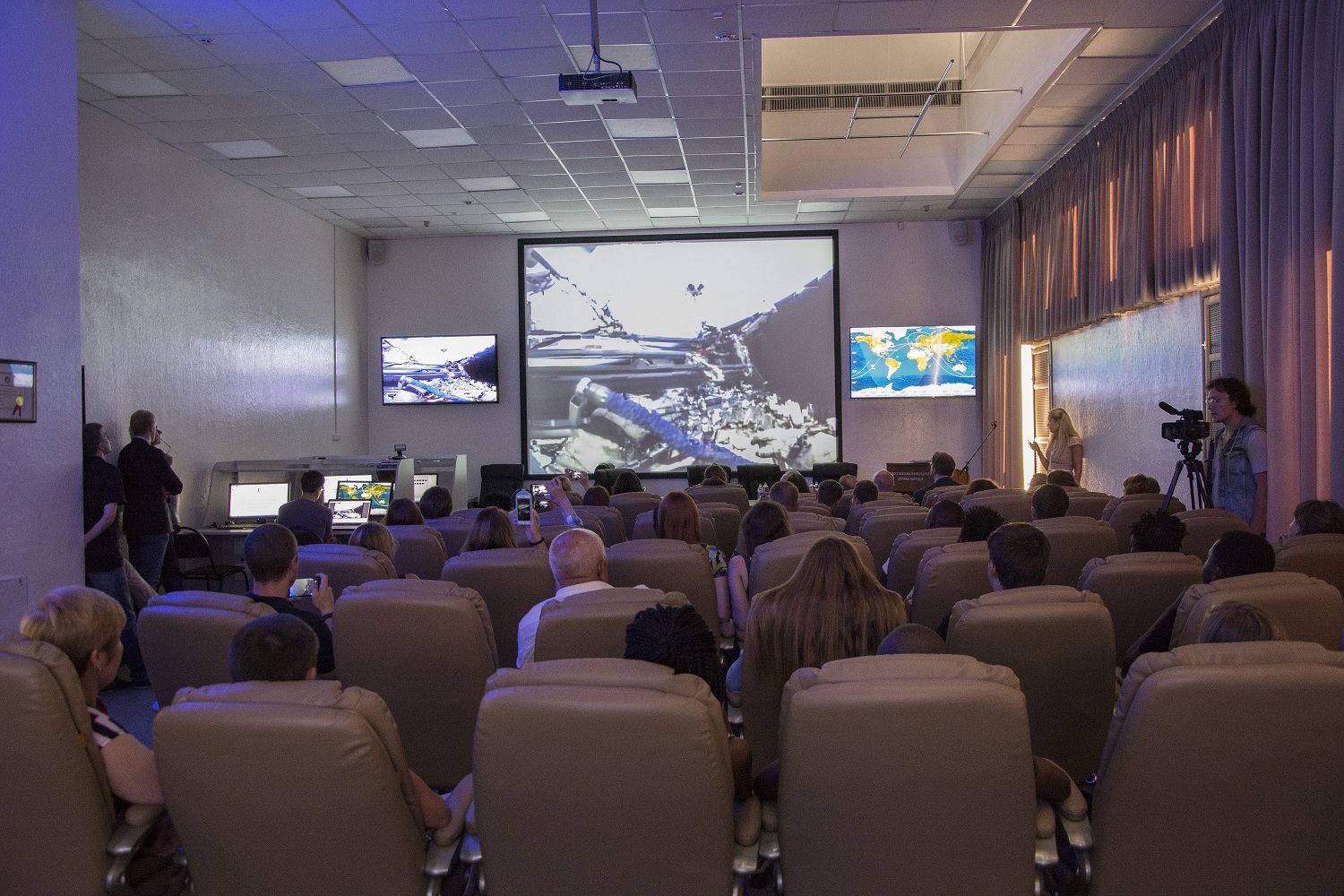The first Russian nanosatellite has been put into orbit. RUDN students will take part in its testing
17 August. 2017, the first Russian nanosatellite TNS-0#2 created by «Russian space systems» holding (RSS is part of Roscosmos state corporation) was put into orbit by astronauts Sergey Ryazansky and Fedor Yurchikhin during spacewalk.
RUDN student watched the launch online in RUDN Mission Control Center.
Alexander Chursin, Head of Department of Applied Economics of RUDN Institute of Space Technologies: «This event demonstrates how unique products are created through the integration of engineers and university researchers’ knowledge. A lot of RUDN IST graduates PhD and Master students are working in RSS and have taken part in creating this nanosatellite».
Jack Marius Bileng, RUDN student from Cameroon: «Russian space technologies are the best in the world and today watching the launch of TNS-0 #2 I felt so proud for the country where I am getting education».
TNS-0 №2 was delivered to the International Space Station in June 2017, by «Progress» cargo space vehicle.
The sputnik weighs 4 kg and despite small size can carry up to 6 kg load, first of all scientific instruments.
An important feature of the nanosatellite is that it is cheaper in manufacturing and orbiting compared to larger satellites.
It is expected that the satellite will be on orbit 3-5 months and during this time collect and transfer to the Earth a huge amount of information. The cost of getting this information will be much lower than the cost of information obtained through traditional space vehicles.
On orbit the satellite flight computer, power system and solar panels as well as solar sensors will be tested.
One of the focus areas in the frame of TNS-0 #2 exploitation will be university applied research development. RUDN students and more than 60 space industry specialists who are mastering specialized programs at RUDN will get access to the satellite information. It will allow them to have adequate experience in designing small space vehicles and accompanying systems.
Together with RSS professionals future specialists in the field of space technologies will get acquainted with the Center’s hardware and software, acquire skills necessary for communication sessions and primary processing of telemetric information.
The RUDN Prize for Scientific Achievements in Chemistry for 2025, with a monetary award of 2 million rubles, was awarded to Alexander Davidovich Dilman, Deputy Director of the N.D. Zelinsky Institute of Organic Chemistry of the Russian Academy of Sciences. The researcher received the award during the celebration marking RUDN’s 66th anniversary.
Sergey Ivanov, a scholar from St. Petersburg, has been named the first winner of RUDN University’s International Prize for Scientific Achievements in Mathematics, worth 5 million rubles.
Products derived from microalgae represent a cutting-edge development in the field of bioeconomy. The potential of this biological resource was discussed at the international research seminar “Foundations for a Green Sustainable Energy”, part of the BRICS Network University’s thematic group on “Energy”. The event was organized by the Institute of Ecology at RUDN University.

